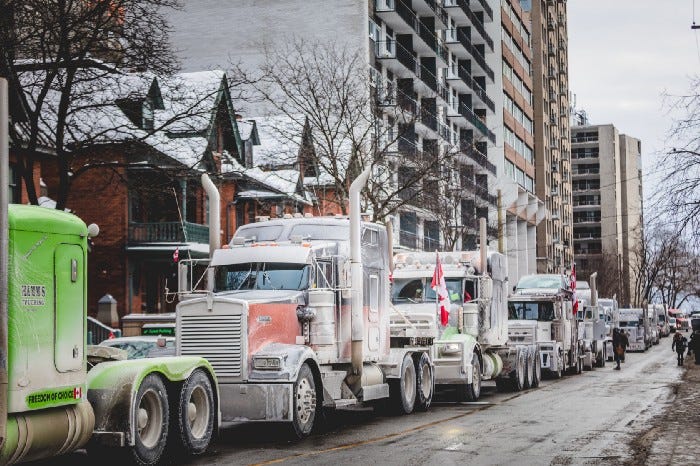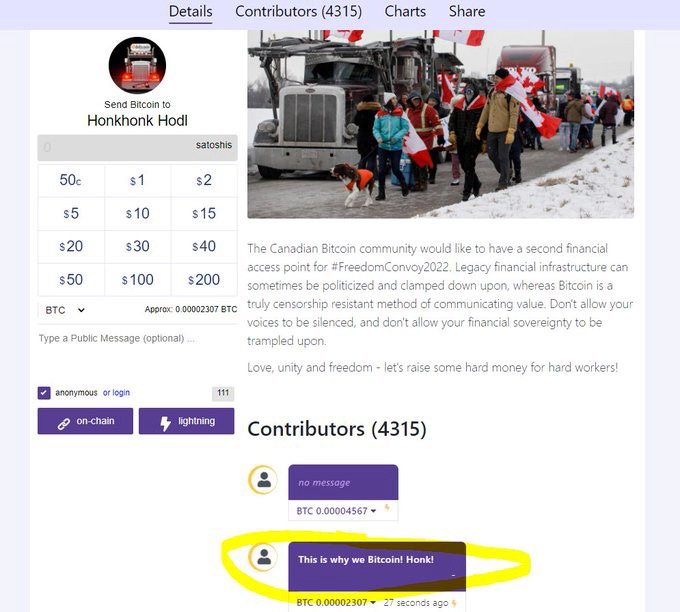I love Canada. There’s only a few places in the world (other than the UK) where I would choose to live, and Canada is one of them.
I have had family and friends there for decades and, as a result, have been a regular visitor since the mid 1980's. I have travelled from East to West from Vancouver via Calgary to Toronto and back again, passing through the sheer beauty of British Columbia.
Not only that, but my other half lived there for five years before returning to the UK where we finally met. We’d been back first as a couple, then, later as a family. For us, there is a deep rooted connection that is impossible to ignore, even if we wanted to.
As a result, I have always kept half an eye on what is going on in a country which is approximately forty times the physical size of my own, but only houses a population of just over half of the UK’s. The perception from here is that Canadians, for the most part, are as quiet on the international stage as they are, relatively speaking, in person.
Well, until now anyway.
Fighting for Freedom?
The “Freedom Convoy” of thousands of trucks left British Columbia on January 22nd bound of the nation's capital, Ottawa.
Typifying what would become mixed, unreliable and shaky reporting through various media outlets as the event unfolded, there were initially reports of a new world record being set due to the sheer scale of it. However, as this article rightly points out, this was never a possibility since the correct steps had never been taken.
In practical terms it still may well have been since the actual record was only 480 trucks set in Egypt in 2020. Perhaps, therefore, we can at least let them claim the technical victory.
By whatever the record holding status of the activity, the reason for it, at least initially, was the opposition to the compulsory vaccination for truckers who leave and re-enter Canada. Latterly, this has morphed into far wider ranging protests, an action that has received mixed reactions from the truckers themselves.
Depending on which survey, commentator or news outlet you subscribe to, there are wildly different assessments of just how much support the protests have across Canada, but this article from CNN seems to confirm that it certainly isn’t universal.
This juxtaposes the seemingly never ending “feel good” videos that have made it over the internet to my screen, from people braving extreme cold to wave and clap the truckers to the dissemination of free food and fuel supplies in what appears to be a very well organized fashion.
It’s hard to get a real sense of it because this whole thing has been, in my view, grossly underreported across the world, but, in any case, there can be no doubt this is a significant event for reasons far beyond the initial grievance. There are constitutional questions, macro health implications, economic ramifications and many other factors that will be discussed for months and years ahead.
But, for me, the issue that is screaming for attention here more than anything else is the wielding of state power by the centralized control of money.
It’s all about the money
Whatever your personal stance on the protests, it is abundantly clear that there are many people who are willing to support the cause financially.
This makes sense. These people are not currently earning a wage while they are protesting, yet they need to stay in position — at least in their minds — to make the point. Truckers’ cabs are surprisingly well equipped by nature of the job they do and they are physically able to stay “on the front line” in relative comfort.
But what about food, fuel and financial support for the families they provide for?
By all accounts, the protest is well stocked with fuel and food being disseminated as it is donated or purchased. But, on its own, it’s not enough.
As a result, a GoFundMe page was set up and quickly reached substantial numbers. However, under pressure from various agencies, the company behind it buckled, citing unruly behavior from the protesters — a claim that was vehemently denied by those who were present.
At first, the company elected to redistribute the funds to charities for anyone who didn't claim for a refund, but, again giving in to pressure (this time from the public outcry that followed) they quickly retracted and promised everyone who donated an automatic refund.
This was then followed by another attempt to fundraise via GiveSendGo which was also well supported, but ultimately fell victim, allegedly, to hackers of unknown origin. According to this article from the Wall Street Journal, over $8million was alleged to have come from wealthy Canadians.
Had Bitcoin not existed, this would have been where the story ended. There would have been no more options to explore, save that of physically disseminating cash to people on the ground. A difficult and, at least according to some, illegal task.
Finally, a move was made to secure funding by the world’s hardest decentralized money — Bitcoin — in an attempt to thwart the authorities.
Via this site, donations could be accepted via Bitcoin on the standard or lightning networks. And they poured in.
Within days, 21 Bitcoin, or about $900,000 was raised and sent to a multi-sig wallet controlled by a Canadian Bitcoiner group known as “HonkHonkHodl”. I, in fact, was one of many donating via my Muun wallet on Lighting, doing lots of little free and instant transactions, each time adding a message:
There are those who will oppose my support and I accept your view, but the real point is that I was able to do this at all, without involving banks, getting permission or having to provide any details.
It’s quite a thing when you think about it, and something that would have been impossible just a few years ago.
Counter-Attack
Realizing there was another workaround now in play, Trudeau invoked some decades old, but never used, emergency powers to take down the truckers. While these need, supposedly, to be signed off by government within seven days of activation, the assumption is that these powers will stand.
And they are real powers. Trudeau’s government has made it clear that it considers these protests completely illegal (the argument cuts both ways) and it will make life hard, very hard, for anyone still involved.
The powers allow police to confiscate equipment and vehicles, forces tow companies to help the authorities (many of whom have been reluctant to do so) forces insurance companies to revoke policies for truckers and, most importantly, freeze suspected bank accounts without court order.
That last line is incredibly important. How, in what is supposed to be one of the world’s “most free” democracies with a score of 98 (for reference the USA scores 83, the UK 93) can this be right? Worse, all banks have been given full immunity against civil action for any accounts they freeze.
Free reign, in other words.
At this point, it really doesn’t matter what side of the debate you’re on. This raises so many ethical questions it becomes simultaneously farcical and terrifying.
Sure, you might think the truckers have what's coming to them, but what if, next time, you’re on the side of another protest? Something that’s dear to you? Where do you draw the line? Most of all, who decides?
This order was clarified by the ironically named Deputy Prime Minister, Chrystia Freeland, who, in a now infamous speech, specifically mentioned they would be targeting cryptocurrency donations, including Bitcoin. She recently followed this up at another press conference, confirming who they would be going after and how.
This would usually be extraordinarily difficult since, although transactions are visible on the blockchain, linking them to specific addresses and people is not an easy task. Happily for the powers that be, the protestors had published some of the address concerned and made the job easier.
In response, regulated crypto entities have been instructed not to accept coins from 30 wallets that have been identified as being associated with the protestors under the new powers, as outlined in this article by the Globe and Mail.
Authorities cannot actually access the funds of course, but they could be tracked on the blockchain if they were moved to another address. Well, unless they used a mixer like Coinjoin, Payjoin and Coinswap of course.
So, for the authorities, their job isn’t over just yet. But for those wanting to obfuscate the funds, the risks just went up considerably. For some, perhaps, it may be too much.
The terrifying truth
Our positions on the protest itself are largely irrelevant in light of the bigger picture. There is an important warning here about what may lie ahead.
Imagine instead of the Canadian Dollar we had the E-Canadian Dollar, a CBDC (Central Bank Digital Currency) issued on a central government blockchain.
With a CBDC, there are no procedural difficulties to overcome or other agencies to consult, it’s a question of pressing a few buttons and anyone who is involved, or even suspected of being involved, can be disconnected from the financial system. Instantly. And with little recourse.
This much power in a centralized capacity is extraordinarily dangerous and government track records are not good in this regard as it is.
Worse, if you are of the opinion that if you “haven't done anything wrong, you don’t need to worry about it” then I’d ask you to consider this:
Are you OK with a government deciding what is wrong and what isn't? What if it’s something you're passionate about or believe is a fundamental right? In a democracy, we’ll all have differing views on those points, as it should be.
This is complex territory, awash with minefields and I don't pretend to have all the answers. If anything, I have only more questions.
However, I do believe that having an alternative, independent payment network, such as Bitcoin, or even just a mechanism to hold centralized power to account is paramount.
Because if this can happen to “protect our freedoms” in what is generally accepted to be one of the world's most democratic countries, it can happen to anyone, anywhere.
Even you.
Want free access to articles, analysis, podcasts and training webinars? Why not subscribe to the ‘Bitcoin and Global Finance’ newsletter? Subscribers over 18, resident in Europe (see list on subscription page) & new to Bitcoin can claim £10’s worth of Bitcoin on joining! Unsubscribe at any time.
Disclosure: The author of this opinion piece has been heavily involved with bitcoin for several years and holds a substantial cryptocurrency portfolio, including bitcoin. He also has a mining operation running the SHA-256 algorithm based in Siberia and is a published author on the subject of promoting the understanding of cryptocurrency. Jason is an analyst at Quantum Economics and consultant to Luno.
Disclaimer: This content is for educational purposes only. It does not constitute trading advice. Past performance does not indicate future results. Do not invest more than you can afford to lose. The author of this article may hold assets mentioned in the piece.
If you found this content engaging, and have an interest in commissioning content of your own, check out Quantum Economics’ Analysis on Demand service.





Yeah CBDC seem like a good idea on paper, but they give too much power to the government. And we all know that's not a good thing. The problem's in the C (Central).
It's sad to see protests were being forced to end that way, but yeah crypto transfers are there to save the day, most of the time. There's no way they can force the refund of raised money, they can block but there are too many way outs for carrying that raise by using decentralized ways...
In this era crypto is the most valid option for transfers, wherever or whenever you be.